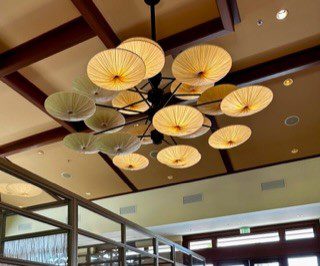On a recent trip to the Big Island of Hawaii, Tammy and I thought we would take a look at interval ownership vacation properties — perhaps better known as a timeshare. We realize that traditionally, this field has a bad reputation. However, we thought it was worth a couple of hours to see for ourselves if the approach would be different and the process had improved.
When the shuttle we thought was going to pick us up failed to appear, I called the reception desk to let them know we were running late. The receptionist asked, “Do you have a rental car?” When I replied that we did, she said curtly, “So, why didn’t you drive here rather than have us pick you up?”
My response was that they didn’t know whether we had a car or not — and as the customer, I should get the opportunity to make the decision on our transportation. Believe it or not, she hung up on me!
Upon arrival, we were met by our sales advisor. He started by addressing concerns we had not even voiced — the reputation of high-pressure tactics and more. He was reassuring and captured our interest.
After showing us a unit like the one we might invest in, his manager came in to talk with us. Despite our insistence that we would consider our decision over the three days we were at the adjoining hotel, she repeatedly inquired, “What can we do to make you owners TODAY?” The pressure was insistent and off-putting.
The tactic made us dig in our heels and refuse to make a decision. In other words, it had exactly the opposite effect that she desired.

Then we were taken into another room to be offered an alternative. When we entered, we could not help but notice that several of the bulbs in the chandelier were burned out and had not been replaced. As prospective customers, we asked ourselves, “If they can’t take care of their own offices…how much care will the maintenance show our timeshare?”
We did not purchase. In part, it was because of the high pressure tactics that simply do not work in today’s marketplace. But it was also an example of how the “little things” make a huge difference to customers.
In other words, the minutiae often define the customer experience more than grand gestures. Here are six reasons why:
1. First Impressions: Little things like a clean environment or a fully functional facility contribute to a customer’s immediate assessment. The Halo Effect suggests that one positive aspect can make everything else seem better. When a customer walks into a pristine environment, they’re more likely to have a positive view of the entire brand.
2. Psychological Comfort: According to Maslow’s Hierarchy of Needs, physical and safety needs come first. A clean, well-maintained space appeals to these basic human requirements, increasing the chances of customers feeling comfortable enough to engage more deeply with your business.
3. Attention to Detail: Harvard Business Review points out that customers value “effortless experiences.” If light bulbs are out or the surroundings are dirty, it indicates a lack of attention that might extend to your products or services.
4. Consistency: In a world where consumer expectations are ever-evolving, reliability is king. According to a PwC report, 65% of U.S. consumers say a positive experience with a brand is more influential than great advertising.
5. Word of Mouth: In an American Express Survey, 65% of participants said they’ve spoken to others about a bad experience, but they’re also likely to share positive experiences. Good experiences with attention to small details get amplified in this age of social media, offering free advertising and genuine endorsements.
6. Up-sell and Cross-sell Opportunities: A CX Intelligence Report suggests that customers who’ve had a good overall experience are 74% more likely to be open to add-on sales. Ensuring the basics encourages people to stick around longer, increasing their lifetime value to the business.
Mastering the little things isn’t just good housekeeping; it’s a strategic move that impacts customer perception, loyalty, and ultimately, your bottom line.
Creating the “Ultimate Customer Experience®” would have improved the opportunity for this group to make a significant sale. The problem is they weren’t aware that these “small” elements can make a world of difference.
Are you taking care of the small aspects that can mean big sales and create distinction for your organization?



